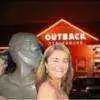-
Welcome to Celiac.com!
You have found your celiac tribe! Join us and ask questions in our forum, share your story, and connect with others.
-
Celiac.com Sponsor (A1):
Celiac.com Sponsor (A1-M):
-
Get Celiac.com Updates:Support Our Content
Is Blue (bleu) Cheese Still Off-limits?
-
Get Celiac.com Updates:Support Celiac.com:
-
Celiac.com Sponsor (A17):
Celiac.com Sponsor (A17):
Celiac.com Sponsors (A17-M):
-
Recent Activity
-
- lizzie42 posted a topic in Post Diagnosis, Recovery & Treatment of Celiac Disease0
Low iron and vitamin d
Hi, I posted before about my son's legs shaking after gluten. I did end up starting him on vit b and happily he actually started sleeping better and longer. Back to my 4 year old. She had gone back to meltdowns, early wakes, and exhaustion. We tested everything again and her ferritin was lowish again (16) and vit d was low. After a couple weeks... -
- Scott Adams replied to Atl222's topic in Post Diagnosis, Recovery & Treatment of Celiac Disease3
Increased intraepithelial lymphocytes after 10 yrs gluten-free
Celiac disease is the most likely cause, but here are articles about the other possible causes: -
- xxnonamexx posted a topic in Post Diagnosis, Recovery & Treatment of Celiac Disease0
FDA looking for input on Celiac Gluten sensitivity labeling PLEASE READ and submit your suggestions
Please read: https://www.fda.gov/news-events/press-announcements/fda-takes-steps-improve-gluten-ingredient-disclosure-foods?fbclid=IwY2xjawPeXhJleHRuA2FlbQIxMABicmlkETFzaDc3NWRaYzlJOFJ4R0Fic3J0YwZhcHBfaWQQMjIyMDM5MTc4ODIwMDg5MgABHrwuSsw8Be7VNGOrKKWFVbrjmf59SGht05nIALwnjQ0DoGkDDK1doRBDzeeX_aem_GZcRcbhisMTyFUp3YMUU9Q -
- cristiana replied to Atl222's topic in Post Diagnosis, Recovery & Treatment of Celiac Disease3
Increased intraepithelial lymphocytes after 10 yrs gluten-free
Hi @Atl222 As @trents points out, there could be many reasons for this biopsy result. I am interested to know, is your gastroenterologist concerned? Also, are your blood tests showing steady improvement over the years? I remember when I had my last biopsy, several years after diagnosis, mine came back with with raised lymphocytes but no villous...
-






Recommended Posts
Archived
This topic is now archived and is closed to further replies.